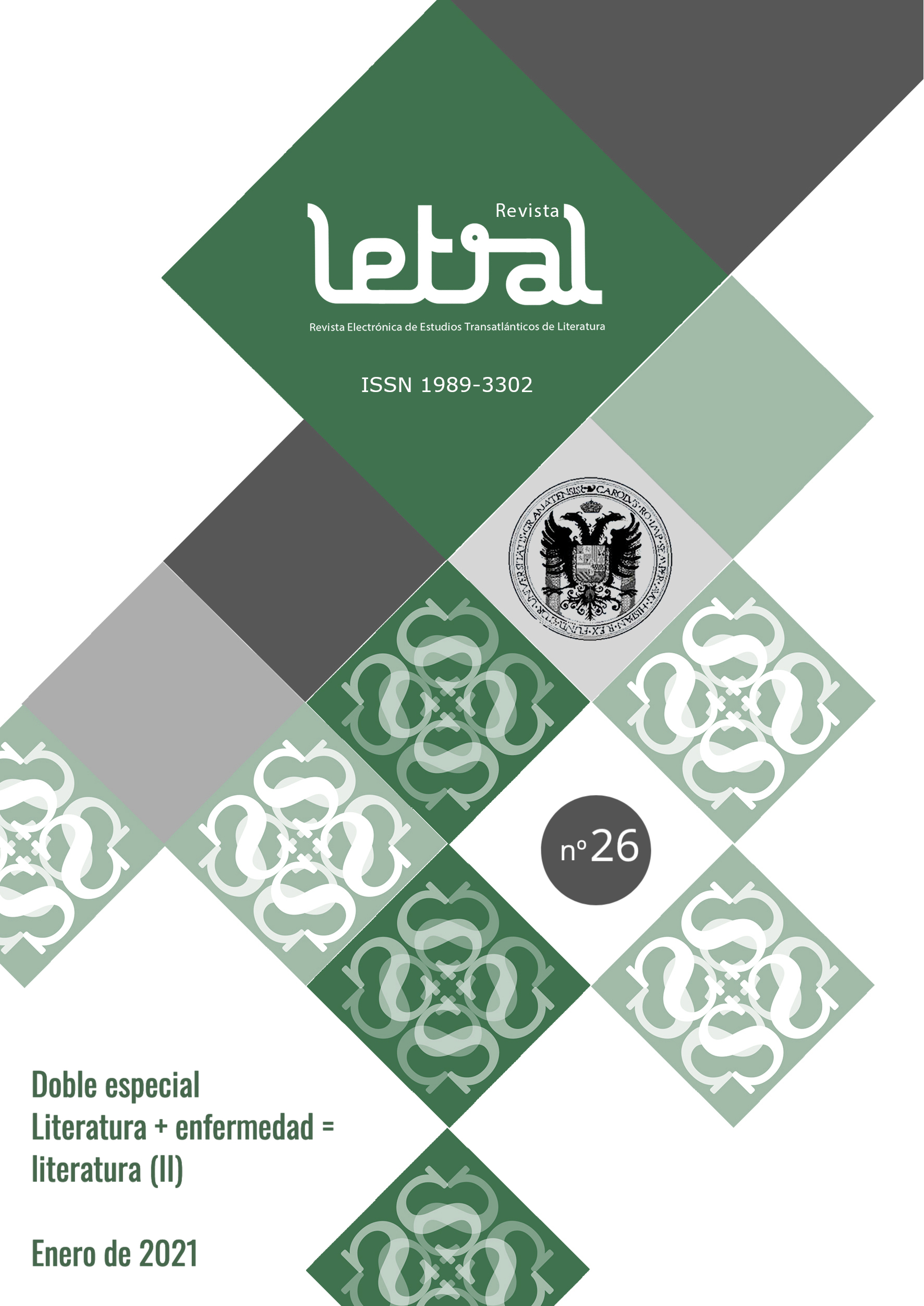The Narration and Its Purpose in Two Testimonial Novels about Female Mobbing and Sexual Harassment in 21st Century Spain
DOI:
https://doi.org/10.30827/rl.v0i26.15929Keywords:
exemplariness, inner-history, narrativity, testimonial novel.Abstract
The narrativity of testimonial novels, apart from counting on a partial involvement of the author-narrator and a high element of subjectivity, acquires two fundamental levels of representation: one focused on the story of the narrator and the other on the story of the main character. In addition to analyzing the narrative discourse of the testimonial novels Hay algo que no es como me dicen by Juan José Millás and No, mi general by Irene Lozano, this study aims to explain the literary text from extratextual elements, interpreting it as a social product. This means that the very theme of female mobbing and sexual harassment in the cited novels, along with the discursive intention of homodiegetic and, on occasions, autodiegetic narrators, turn a particular inner-history into an exemplary and denunciatory discourse.
Downloads
References
Amar Sánchez, Ana María. “La ficción del testimonio”. Revista Iberoamericana, n.º 151, 1990, pp. 447-461.
Amar Sánchez, Ana María. El relato de los hechos. Rodolfo Walsh: testimonio y escritura. Rosario, Beatriz Viterbo Editora, 1992.
Castany Prado, Bernat (2008). “Figuras III de Gérard Genette.” Tonos Digital. Revista electrónica de filología, n.º 15, 2008, pp. 1-21, disponible en: diposit.ub.edu/dspace/handle/2445/34775 [20 de ago. de 2020].
Fauquet, Isabelle. “Trayectorias ejemplares en Hay algo que no es como me dicen. Caso de Nevenka Fernández contra la realidad, de Juan José Millás”. La ejemplaridad en la narrativa española contemporánea (1950-2010). Amélie Florenchie e Isabelle Touton (eds.), Madrid, Iberoamericana-Vervuert, 2011, pp. 259-277.
Genette, Gérard. Figuras III, Carlos Manzano de Frutos (trad.), Barcelona, Lumen, 1989.
Hamon, Philippe. Text et idéologie. Paris, Presses Universitaires de France, 1984.
Lejeune, Philippe. “El pacto autobiográfico (1973)”. El pacto autobiográfico y otros estudios. Francisco Jurdao Arrones (dir.), Ana Torrent (trad.), Madrid, Megazul-Endymion, 1994, pp. 49-88.
Lozano, Irene. No, mi general. Barcelona, Penguin Random House Grupo Editorial, 2015.
Millás, Juan José, Hay algo que no es como me dicen. El caso de Nevenka Fernández contra la realidad. 2004. Barcelona, Seix Barral, 2013.
Sánchez Zapatero, Javier. “Escritura autobiográfica y traumas colectivos: de la experiencia personal al compromiso universal”. Revista de Literatura, vol. 73, n.º 146, 2011, pp. 379-406.
Showalter, Elaine. “Towards a Feminist Poetics”. The New Feminist Criticism: Essays on Women, Literature and Theory. E. Showalter (ed.), London, Virago, 1986, pp. 125-143.
Vivero Marín, Cándida Elizabeth. “Género y teoría literaria feminista: herramientas de análisis para la aproximación social desde la literatura”. Sincronía. Revista de Filosofía y Letras, n.º 70, 2016, pp. 114-134.
Published
How to Cite
Issue
Section
License
Revista Letral is an open access journal under a Creative Commons Atribución-NoComercial 4.0 license.
The works published in this journal may be reused, distributed and publicly presented for non-commercial purposes, provided that: cite the authorship and the original source of the publication (journal, publisher and URL of the work).
We strongly recommended you to share our published articles in social and scientific networks, institutional and public repositories, personal or institutional websites, blogs, Google Scholar, ORCID, ResearchID, ScopusID, etc.
The journal allow the author(s) to hold the copyright and to retain publishing rights without restrictions.
We are completely free, both for readers and authors.














